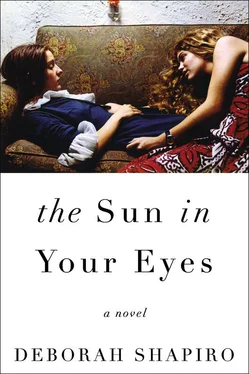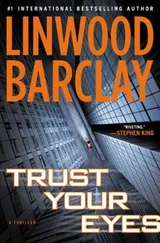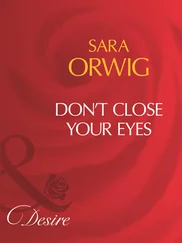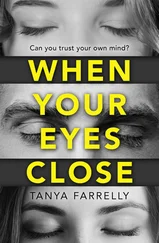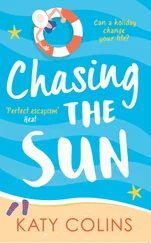Using her father as a reason to pull Viv back into her life, or push herself into Viv’s, was sad and pathetic. She had gotten as far as admitting to Barbara, in that contemplatively lit office high up in a residential tower on the Upper East Side, water towers in the distance, that she missed the way Viv had idealized her. It used to make her feel possessed of some lasting, captivating power. Viv must have seen something in her. The way Viv attached herself to me, as though she might really start going places now that she had me as a friend, as though her life might begin and it was almost like I kept waiting for her to realize she bet on the wrong horse. Barbara said: I think it’s interesting that Viv, as you’ve described her, never seemed all that envious of you, of all that you had or had been given. And Lee thought, No, Viv didn’t really seem envious, more like pleased to have been let in on it. The more I gave her, the more I got — I fed off her adherence to me. Barbara said: You tend to talk about your relationship as if you’re somehow the bad one, as if you’re bad for Viv. Lee: You don’t think that’s the case? Barbara: I’d like to hear why you think that’s the case.
Lee didn’t tell Viv about any of this.
Viv found various accounts of Marion’s relationship with Jesse and the accident but nothing about what had happened to her since. One article by a conspiracy theorist proposed that while there was a crash, there was never any accident, that Marion and Linda had plotted to kill Jesse and carried the whole thing out together, Diabolique -style. The writer presented it as a given that the wife and the mistress wanted to do away with Jesse mostly because they were women and women did things like this. It made Lee sick and uneasy — not the accusation itself, but the tone of psychotic familiarity. Along with the caveat: “Full disclosure: I’ve never met Linda or Marion. I don’t know what they’re like, personally.” As though he very well could meet them, and it wasn’t an issue of access but of timing or disinterest on his part. As if he were too busy doing so many other important things. As if Linda, Jesse, and Marion weren’t his betters.
They wrapped it up and went for fried egg sandwiches and spinach pie smothered in red sauce at the coffee shop they used to go to all the time, after Andy graduated and she and Viv latched on to each other. Still the old striped awning, maybe a fresher coat of green paint on the woodwork around the front windows. How often had they sat here, at the laminate-topped tables? They must have usually been part of a group because this is where everyone in their set ended up, but in Lee’s mind, they didn’t have a set. It was just the two of them, sitting at the counter. The owner’s daughter would let them turn the radio to the state school station, which in Lee’s memory was forever playing Taking Drugs to Make Music to Take Drugs To. Moments from so many late nights spliced themselves together.
Viv: “My grandmother thinks my voice is sexy.”
Or: “I felt weird bringing popcorn into a documentary about Herbert Marcuse. Nobody else was eating anything.”
Or: “It was a good thing I stayed in. I got to see that episode of Melrose Place where Kimberly checks Peter into the hospital to give him a lobotomy.”
Or: “He told me he was glad I was editing his article because I’m kind, patient, and gentle.”
“Those are good things to be,” Lee had said. She couldn’t remember who the “he” in question was. Someone who worked on the same school publication as Viv? Someone who was sort of a dick but who Viv sort of had a crush on?
“Yeah, but there was something so condescending about him saying it or else it was the way he said it. It made me want to say, Shut the fuck up, you pompous fuck. Like I’m only here to balance you out with my docility. I didn’t say it, though. I just kind of raised my eyebrows then smiled. All kind, patient, and gentle.”
And: “Why can’t I talk to him? Why do I turn into a big, boring piece of rubber? He’s smart and he’s nice and he looks so smoochable.”
“Everyone here is smart and more or less nice and more or less smoochable. It’s something else, something you can’t measure in those terms.”
Lee couldn’t articulate what else it was. She knew only that it felt a lot like this: sitting with someone and wanting to keep sitting with them, to keep hearing what they said.
She half expected to see people they knew here now, which was irrational. The people they did see looked so very, very young. The owner had passed away, the owner’s daughter was out, her son said, as he handed them menus. She and Viv really had to stop this reunion tour of greasy spoons. Though the food was fine, same as ever, the whole experience was like using the little toilet at an elementary school: familiar, workable, but mostly uncomfortable. Lee had thought that while they were here in Providence, they might visit their old house, the footbridge over the highway, the park by the water where they used to sit and look out. But on further consideration, it seemed wiser to spare themselves all of that.
They paid their check and walked outside. From up the street came laughter and voices out of the dark. A guy shouting “Booooom!” and a girl going “Aaaahhh, fuck you, Kevin. You scared the fuck out of me, dude.” Lee tried to remember, from her own experience, why teenagers liked to be loud on street corners. Nothing occurred to her. But as she and Viv went back to their room, she was glad for the noise, for all the space the loudness occupied. She didn’t feel like talking anymore tonight.
“YES, COME IN.”Tiny Patti Driggs sat at a big desk in a room that might once have belonged to a couple of maids when the arts building, with its marble entrance hall and grand staircase, had been a stately home. Lee could almost see them, two girls looking out of the leaded window, beyond the terraced garden, down at the small city below. Thinking of bigger cities they could run off to. Patti had lived in those cities and now she was here. She took her eyes off what she had been reading, removed her glasses, and blinked up at them. “Do I know you?”
Before Lee spoke, Patti stood, instantly energized, a spider scuttling across its web. All in black, she appeared ready to take the stage with a mime troupe. Her bob was serious. She smelled clean and citrusy. Her wine-colored lipstick feathering into the little lines around her mouth was the only hint of weakness about her. Linda could have recommended a good product to keep the color in place, and Lee could just glimpse such an exchange happening: the détente between two old enemies whose former allegiances no longer meant anything because their sides no longer existed, but whose shared singular history made them, in effect, comrades.
“I do know you.”
“I’m Lee. Lee Parrish.”
“Yes, you are. I’ve seen your picture. Pictures.”
Lee wasn’t sure what to make of this. But then, Patti Driggs had written a book about photography. Copies of it lined a shelf on a wall full of other books. Photographic prints, one of which had the meticulous formal qualities Lee recognized as David Haseltine’s, covered the other wall.
Patti waited for Lee to say something.
“If this isn’t a good time—”
“Have a seat. It’s a fine time. I think. Though that may depend on why you’re here.”
Lee and Viv took the pair of dark wood spindle chairs facing Patti.
“I didn’t mean to surprise you,” Lee started, “but I wasn’t sure if you’d be willing to see me, and I was hoping to ask you about something. . Excuse me, this is my friend, Vivian. Feld.”
Читать дальше
